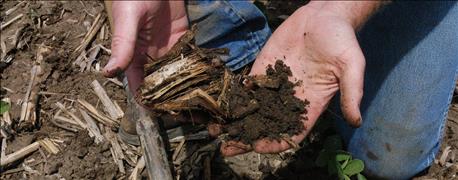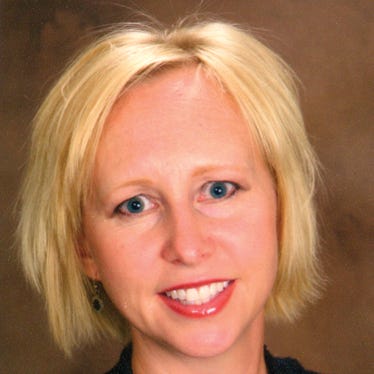November 14, 2015

"The greatest asset farmers have is under their feet – their soil. People think they are taking care of it, but they aren't."
That's how Howard G. Buffet kicked off a panel discussion on no-till at the Borlaug Dialogue International Symposium held in Des Moines, Iowa. This annual event on global agriculture is held in tribute to Iowa native Norman Borlaug, who prompted the Green Revolution. Borlaug is credited with saving more than a billion lives with his development of improved, high-yield wheat varieties that began to be grown in Mexico, Asia and Latin America in the 1950s and 60s.
Buffett farms in the U.S. and Africa. He is a philaphonist and a former CEO of ConAgra Foods and former ADM board member. He also is president and CEO of the Howard Buffett Foundation, a private organization dedicated to ending hunger.
Buffett is passionate about soil health and no-till.
He says soil health requires minimal soil disturbance, continual cover or cover crops, and rotation of crops. He also advocates reducing inputs and says, "You can do amazing things if you know how to use nature."
Buffett notes that changing practices to foster soil health is a mindset shift, and it requires a learning curve. "It's not easy to figure out – it's like rocket science, but once you figure it out, it is easy," he says.
Related: Cover crops take off, but not everybody signs on
Buffett describes the roots of cover crops as "channels into the soil" as opposed to the compaction that machines create. He adds, "You are building an ecosystem under the soil."
His frustration is this: "Many people say I tried no-till one year and it didn't work. To me, that's like saying I tried marriage for a year and it didn't work. Nothing in ag works in one year. You got to work at it and compromise.
"I've been in every country in Africa," he concludes. "When you see children die [due to a lack of food], you realize you can and must farm better. That's why I am passionate about it. Status quo [farming] is unacceptable. When people throw stones at conservation agriculture, give me a better answer than 'I tried it one year and it didn't work.'"
Thinking about a cover crop? Start with developing a plan. Download the FREE Cover Crops: Best Management Practices report today, and get the information you need to tailor a cover crop program to your needs.
Gordon writes from Whitewood, S.D.
About the Author(s)
You May Also Like






